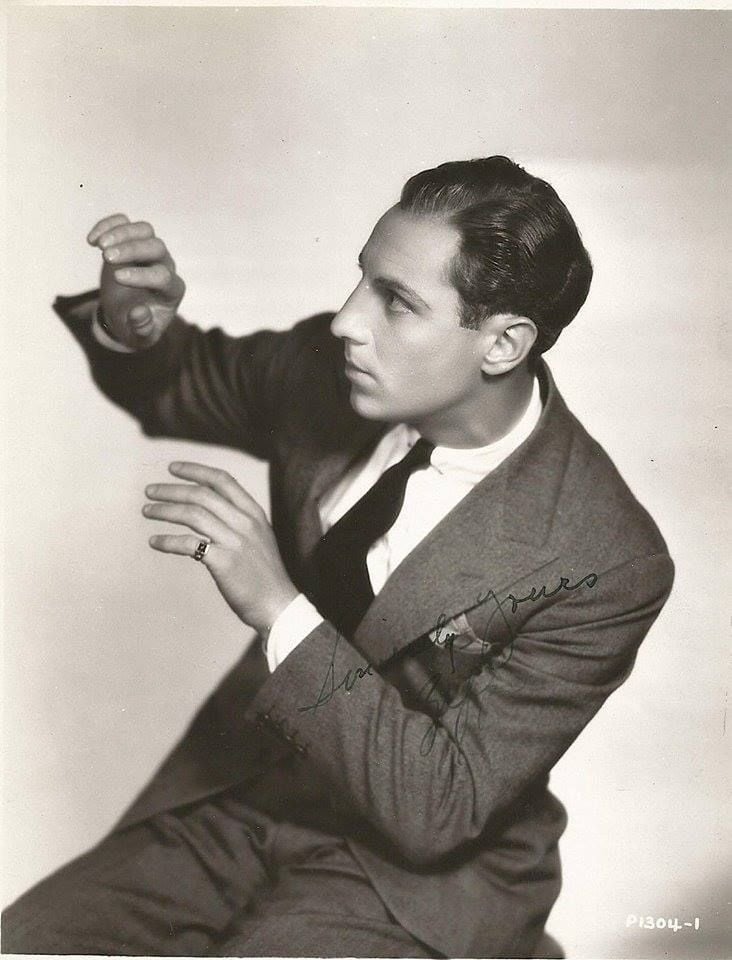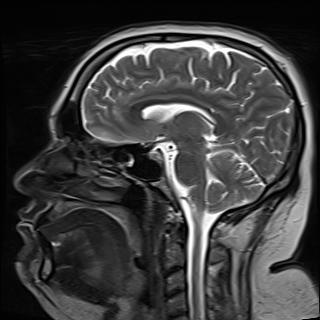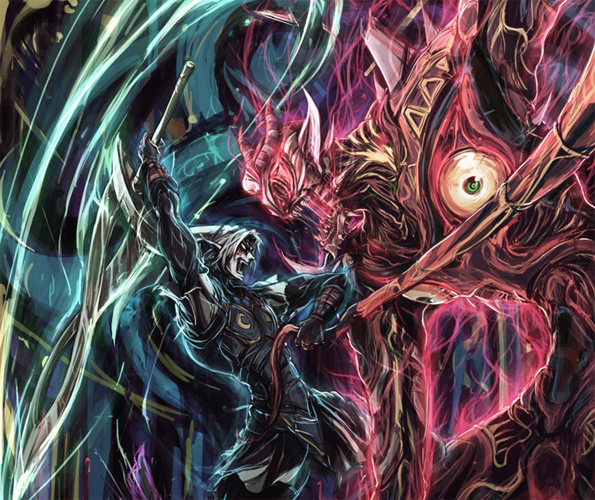Another player who was at the table during the incident sent me this meme after the problem player in question (they had a history) left the group chat.
Felt like sharing it here because I’m sure more people should keep this kind of thing in mind.
Why would that even be a problem? Plenty of blind people in ancient stories, myths and legends. Probably better off without this person.
I mean on one side you’d have the magic to heal many if not all disabilities.
On the other hand in reality we have wheel chairs and stuff to heal and prevent many diseases, too, but still not everyone can get those…
We have the ability to make Tuberculosis not exist and have for half a century. At least 1.6 million unnecessary deaths occurred because of it in 2022. Anyone who can’t think further than the first point has the thought capabilities of a gnat.
I just found John Green‘s account.
On a serious note, it is really sickening to hear stuff like this. It’s not even that those drugs are crazy expensive or extremely difficult to distribute. It’s just greed and very bad distributed wealth
We have the ability to make Tuberculosis not exist and have for half a century.
Please tell me more. My knowledge about this must be very outdated.
There are a lot of things that are really only failing for a lack of distributing ressources. But Tubercolosis (where our once widely used vaccine was mostly ineffective in eradicating it and the treatment is complicated and long requiring monitoring of each patient because of the possibility of secondary infection from the antibiotics or organ damage) is not what comes to my mind first, second or for quite a while.
In fact in both cases research is ongoing in search for more effective vaccines and easier treatments (primarily for shorter treatment periods as well as against the multiple antibiotic resistences), because our tools today are not actually up to the task.
As a fun saying goes “The future is here, it’s just not evenly distributed”
The same could easily apply to magics of many kinds
The Blind Swordsman is a massive trope in fantasy literature. Take a look at David Carradine’s character in Circle of Iron for an archetypal example. It’s a staple in many kung fu movies - the Master uses their hyper developed senses for sounds and for movements in the air to sense and react to their enemies. Or take Luke Skywalker fighting the drone with his eyes covered by using the Force. Hodr was the blind son of Odin.
Blindness also occurs throughout mythic traditions, sometimes as punishment by the gods. It occurs in Greek and Jewish myths. The witch-woman in Hawk the Slayer was blind (played by the great Patricia Quinn, who also starred as Magenta in Rocky Horror).
I think it makes perfect thematic sense to include blindness in characters. A blind beggar, a blind prophet, or a blind samurai are all staples of the fantasy tradition. I’d actually love it if we had to work out a player character who is blind, but that would take a fair amount of effort. I think the payoff would be remarkable and memorable, though.
Critical Role had a guest playing a blind character. It was a wizard with folk hero background who used his bird familiar to see. He was awesome.
I could swear he was a cleric who somehow had the familiar spell. Yeah, cleric: https://criticalrole.fandom.com/wiki/Shakäste
I’ll echo the words of my friend, who is a permanent wheelchair user:
“Yes, I identify with my disability as part of who I am, but I would still take a cure without hesitation”
Yes, people with disabilities identify with their disability, so even in a fantasy setting I can see how their disability would be part of their character.
But every disabled person I know would figuratively leap at the opportunity to reverse their disability with magic. It is also basically impossible to use a wheelchair while holding something like a wand or a staff or a fireball in one hand, so if there’s enough magic around to push a wheelchair, there’s probably enough to make your legs work. That’s why somebody has a good reason not to expect a wheelchair in a fantasy world. I can see how somebody who doesn’t really know any disabled people would panic at the idea of a wheelchair being part of the narrative or something like that, and I can sympathize with it.
The only people I have ever seen claim that disabilities aren’t so bad and you can live completely normal etc. are people with no disabilities at all. I’m not disabled, my eyesight is just shit and I don’t know what I’d be willing to do to get normal eyesight. Just to get rid of a pair of glasses. I can’t imagine the lengths someone actually disabled would go to in order to get a cure.
“I’m not disabled, my eyesight is just shit and I don’t know what I’d be willing to do to get normal eyesight. Just to get rid of a pair of glasses.”
I apparently would pay someone a large sum of money to zap my eyes with a laser using a giant machine with only the vague promise that after the laser burns heal, your vision will be better.
laser burns
Technically not burning. Even though (and nobody warned me of this before my procedure) it sure af smells like something is burning while the laser shines down on your exposed retina, that’s actually the smell of vaporised cornea.
TL;DR: laser vaporisation, not laser burning. Much more metal.
That somehow sounds even worse.
It’s a bit of a double-edged sword. Representation is great, because it makes us feel less like a shame to be ignored or scorned - but also, being disabled fucking sucks, kind of by definition, and it’s hard to take seriously people who peddle the ‘handicapable’ stuff. I don’t need any toxic positivity in my life, thanks.
In our world we do have the magic to push a wheelchair around, and it’s not even hard to do this. Tinkerers can cast the spell of self-propelling wheelchair in their garages.
But magicing someone’s legs to work is still a far way off.
(Remember, when magic is well explained and documented, and people get used to it, they tend to call it technology.)
What I won’t accept is that for some reason, all the illustrations that depict this use the hospital wheelchair design. If you are an adventurer who goes into dungeons, you should be getting something that can handle that terrain better than a squeaky shopping cart. Go for the fantasy version of Professor X’ flying chair. Or at least get something with all-terrain wheels, and have them angled like the ones in the wheelchairs athletes use.
I’m picturing something that walks like a spider.
This looks to be a wizard being ambushed along a well paved path. I don’t think they needed an all terrain wheelchair. They were just going about their day.
Well it is quite strange to be so offended of disabled people that you would leave the game But as a devil’s advocate what the problem is actually a world building one. If you establish that the world has magic, magic is widespread and powerful then the fact that there are disabled people could be slightly immersion breaking. For example in DnD lesser restoration a 2nd lvl spell would cure most blindnesses (well except if the person has actually lost their eyes). Hard to say anything more because you gave so little details. Ultimately that person had a disproportionate response but I find your meme both pointless what aboutism and generalization. Hope you have a good day.
Exactly, lesser restoration is a spell 5th level clerics can cast, it won’t be super common but every temple should have someone in charge at that level at least. I’m not saying it’s impossible for people to be blind or otherwise have physical dysfunctions but magic on the scale dnd assumes means there will be lower rates of it. Did the player overreact? Yes, but he wasn’t 100% wrong
It is like saying a Wizard isn’t allowed to have glasses.
I don’t have a problem with having disabled people in a TTRPG setting, but I hate the “it’s fantasy, stop whining about realism” argument.
Removed by mod
I’ve seen them somewhat often in RPGs and related material. There’s those who are blind, frail, deaf, weak or lacking a skill to do something necessary. Even Basic D&D had notable penalties for rolling INT 3-5, being illiterate to start with.
NPCs in fantasy settings still have hinderances, and they’re expected. Maybe they can be neutralized by healing magic in D&D, or there may be equipment that works around them. The wrong part is shutting down the concept, as that’s contempt for the weak (technically a symptom of fascism.)
While Nazi-Germany was infamous for ‘euthananizing’ disabled people, it is sadly not a principle reserved for the right extreme.
Luckily most don’t go as far as right out killing the weak. But sadly there is almost always a splinter group in any political or ideological orientation that shows contempt for the weak.
In the United States, millions and millions of people walk around with conditions we can treat with our own kind of magic: modern medicine. So why don’t they get that prosthetic arm, treat that chronic pain, get that surgery, or take those pills? They can’t afford it. Why don’t they get that vaccine? They don’t believe in it. If magic exists to eliminate all disabilities, then there should be no smart, rich people with disabilities in your world building, certainly. Plenty to go around otherwise though.
If magic exists to eliminate all disabilities, then there should be no smart, rich people with disabilities in your world
I disagree. I know plenty of smart people with disabilities who wouldn’t take a cure if it was possible. Most of them are autistic. Autism is a disability in a world that doesn’t accommodate it, but it doesn’t have to be. It’s a disability politically, not intrinsically. And deafness is pretty undeniably a disability, but I’ve read about deaf people not wanting to join in on hearing society because they think the deaf community is better.
This might sound hard for you to understand if you’re fully abled, so I’ll put it in terms you can understand. Imagine if tomorrow scientists invented a cheap, painless procedure to install a third arm in your chest. Everyone’s getting them because they’re so useful, and clothing stores are quickly switching to shirts with three arm holes. It’s getting hard to find shirts with only two arm holes, in fact. Even if everyone you knew said they preferred having three arms, would you get one?
I am disabled. I would take a magic cure in a second, as would the vast majority of disabled people.
I’m disabled and I wouldn’t. I don’t think I’d be me if I wasn’t autistic.
I think if you do not want or need a cure, it’s not a disability. Doesn’t make sense to call it a disability then.
Autism is a disability mostly for social reasons, not for intrinsic reasons. I guess you could say that I do want a cure, if the cure is society becoming more tolerant. But I don’t want a cure that changes my intrinsic nature, because there’s nothing intrinsically wrong with being autistic.
What is a disability “for intrinsic reasons” or that is “intrinsically wrong”? Only disabilities that cause direct pain?
Per definition, a disability is something that gives you a handicap for living in how the world is.
A disability for intrinsic reasons would be something like paraplegia or deafness. There is no social relativity to whether people with these conditions can do less things. But whether something is intrinsically wrong with that person is up to their own judgement. They are free to set their own standard in that case, and determine whether they really should be able to walk or hear, just as I’m free to determine whether I really should be able to make eye contact or process speech. (It is my opinion that the loudness of public spaces is unnatural and unjust, and that people need to fucking speak clearly instead of being lazy and making me do the work of listening closely)
But I think you’ve ignored my point. Which is that I don’t want to be cured of my mind’s nature, but I do want to be free of a society that disables autistic people. My question to you is, do I want to be cured? Is social acceptance and accommodation a cure?
A lot of this has probably been said already, but I want to point out that restrictions breed creativity.
This is a magic fantasty world, how would your character deal with their differences? What coping mechanisms would they develop? Would a blind character develop some alternative to vision? Would a physically disabled character find some other way to navigate the world?
I see people asking “why would disability exist in a world with magical healing” as a way to dismiss the entire concept. I feel that engaging with the question, and trying to answer, it leads to more interesting characters.
Toph from Avatar is an example of following these restrictions. Would her character and abilities even exist if the writers didn’t sit down and wonder how a blind character would work in their universe?
I couldn’t care less if there is a disabled character in a fantasy game. But it does beg the question: why would there be a magic character who relies on a real-world wheelchair when they presumably have magical abilities that would eliminate their disability, and why would that be someone’s fantasy?
That being said, it’s fantasy. You’re allowed to do virtually anything you want. It’s up to the DM to accommodate their players.
It may simply not be a disability in their eyes. If you can use magic your ability isn’t as grounded in your own physical ability. A fighter sure, but there are other classes that may not have a desire to “fix” what we would consider to be disabling!
This would almost certainly be similar to how people on the autism spectrum feel vs how people who don’t, expect them to feel.
I mean, you’re correct but that meme’s vision of what a disabled character should look like in a fantasy setting is probably the most boring I’ve ever seen.
A manual wheelchair? In worlds where levitation, flight, telekinesis, etc exist?
Fuck, even the X-Men have a hovering chair.
Not only that, if you could afford a wheelchair or glasses in a medieval setting you can probably afford healing magic
This wheel chair looks out of place for the setting. I love what Psychonauts 2 did: there is a disabled character that uses psychic levitation for his “wheel” chair.
Another reason the chair looks out of place is because it’s a transfer chair, not a self propel chair. These chairs are designed to push someone, they aren’t designed for independent mobility.
These chairs are commonly represented in media because they are cheap and often the “first chair” a disabled person will get because of their affordability and needing something quick. But they are bog standard and you can’t really get around by yourself in one without more pain or fatigue. You’ll then start the process of getting a measured for a chair that will fit your needs.
Some people only have a transfer chair because they are semi-ambulant/part time chair user, so that’s all they need. But most people who use a wheelchair will not use a transfer chair long term. It’s temporary because it’s shit.
So it doesn’t make sense that someone with an active lifestyle, like a DnD character, would use this style chair as their main aid. Unless there’s something in the campaign, like their main chair was damaged, or the disability is recently acquired, the character is poor, etc.
Ok but a wheelchair would be dumb when you could just get some enchanted armor.
This is my issue.
Its a fantasy world. Dont copy paste non magic human solutions to disability. Create fantasy ones.
Enchanted pants that give you mild telekenesis while wearing them, but only on the pants. You can walk with your mind now, but you need the pants to do so.
Youre still disabled, but now your disability is more akin to glasses. An aide that is required, but in most cases completely masks your disability and lets you go about your day to day mostly unhindered, all while maintaining the worlds flavor without the weird clash of having a piece of tech that doesnt match the world around it.
Dont want your disability fully masked? Give them a familiar to ride. Or keep the telekenesis, but make it a chair whose legs can walk.
Its fantasy so we can ignore reality for a lil while. You dont need real solutions to problems, you need fantasy solutions.
It depends on the tone of the setting. Someone who gets their leg broken in a Forgotten Realms game can usually find a small-time priest to cast Cure Wounds on them, preventing most disabilities that aren’t from birth. Someone who gets their leg broken in Warhammer Fantasy has to hope within their gimped traveling distance that there’s a priest of the correct faith capable of appeasing the gods for the healing to happen, before their detriments become permanent. As such, having a disabled character in a game with more accessible healthcare requires an extra degree of explanation, on top of the PCs’ and players’ emotional response to someone being so downtrodden. The circumstances of their ailment, who or what was responsible, how they see their ailment and work around it, all are weights on the players’ suspension of disbelief that a GM has to take into account that they generally otherwise wouldn’t with John Miller, the able-bodied dude who runs the mill with a wife, three kids, and a problem with rats stealing the grain that he mills. It’s like a Chekov’s Gun in that sort of way, the GM as a storyteller surely wouldn’t spend the effort to decide that an NPC has a trait that is notably separate from the default without it being somehow relevant to the plot. The mage asks the party to do a quest for their magical research, a general asks the party to do a quest for national security, and a person in a wheelchair… what desire do you give them that wouldn’t be misconstrued as able-ist or a waste of that character trait? It’s very difficult, often comes with an air of making some kind of a statement, either that they’re a writer capable enough to wear disabled-face without it being offensive, or taking a preachy high-ground telling people a message about human sympathy, determination, and adaptability that they’ve already been made well aware of by the existence of popular culture.
It’s like a Chekov’s Gun
this is the root of your misunderstanding. diversity doesn’t require a plot hook, let people just be different and let people who are different in real life be represented in the media they consume.
















